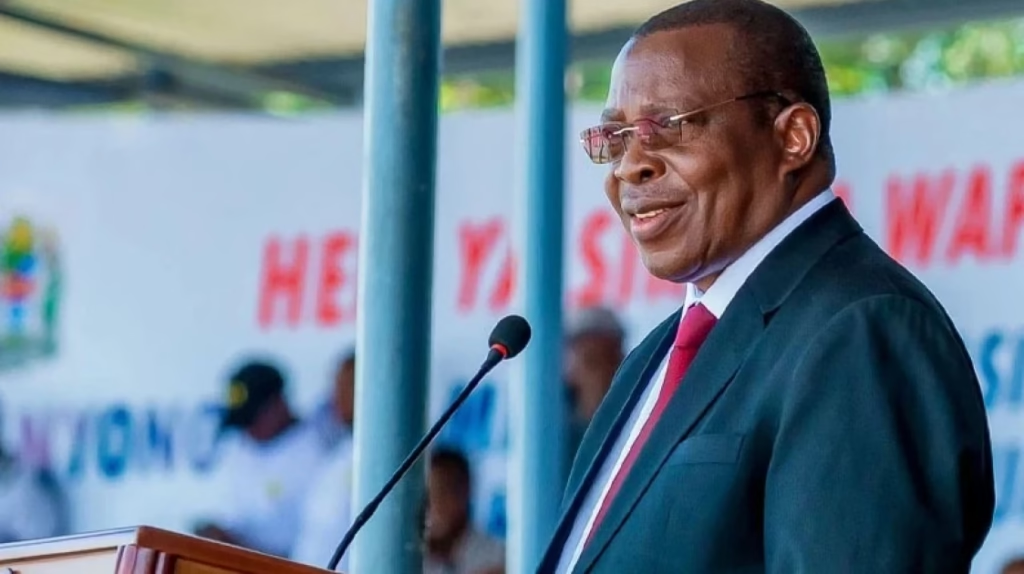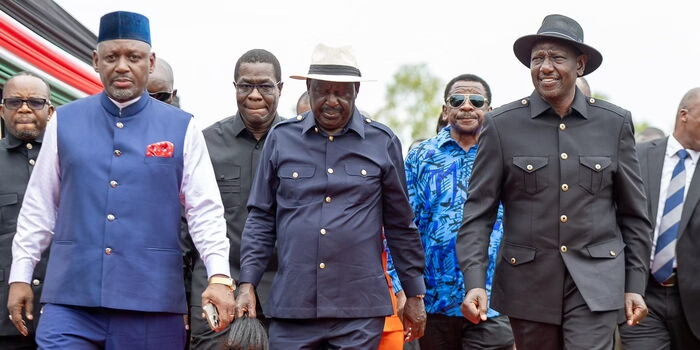
In a surprise turn of events, Tanzania’s Vice President, Dr. Philip Mpango, tendered his resignation on Monday, June 2, 2025, ending his nearly four-year tenure in office. The announcement, delivered during a nationally televised press briefing, caught much of the country and political observers off guard.
Citing “personal reasons,” Dr. Mpango’s resignation speech lasted barely five minutes, but its impact is already echoing across Tanzania’s political landscape.
“After deep reflection and consultation with my family, I have made the difficult decision to step down from my duties as Vice President of the United Republic of Tanzania,” Dr. Mpango stated solemnly.
This marks the first voluntary resignation of a sitting Vice President in Tanzania’s post-independence history — a significant moment in a nation where such moves are rare, especially from top-level officials.
Dr. Philip Mpango, 66, was appointed Vice President in March 2021 by President Samia Suluhu Hassan after her historic ascent to the presidency following the death of President John Magufuli. A trained economist and former Finance Minister, Mpango was instrumental in shaping Tanzania’s economic recovery policies post-COVID-19 and played a key role in driving investment partnerships across East Africa and beyond.
During his tenure, he was known for his pragmatic approach, policy discipline, and low-profile demeanor — often working quietly behind the scenes to navigate complex national challenges
President Hassan’s office released a short statement expressing gratitude for Mpango’s service and assuring Tanzanians that the government remains stable and focused. No immediate successor has been named, but sources within the ruling Chama Cha Mapinduzi (CCM) party suggest a nomination could come within the next two weeks.
Meanwhile, the public and civil society groups have called for transparency.
“This is not a routine administrative change it’s a major development,” said Lilian Mallya, Executive Director of the Tanzania Governance Observatory. “The people deserve clarity and confidence in what comes next.”
Although the official reason was personal, insiders speculate that Dr. Mpango had grown increasingly distant from key party circles in recent months. Rumors of friction between him and some cabinet members particularly over economic direction and transparency have swirled quietly for over a year.
Political analysts say the timing is crucial. With local elections on the horizon in early 2026 and internal party dynamics shifting, some believe the resignation might be a strategic retreat or perhaps even a signal of deeper divisions within CCM.
According to Article 37 of the Tanzanian Constitution, the President is required to nominate a new Vice President within 14 days, subject to approval by the National Assembly. In the meantime, senior cabinet members are expected to share VP duties.
This constitutional mechanism ensures continuity, but the political process ahead is likely to be closely watched both domestically and abroad.
Markets responded modestly to the resignation. The Tanzania Shilling dropped 0.7% against the U.S. dollar on June 3, and the Dar es Salaam Stock Exchange showed slight dips in early trading, particularly in banking and infrastructure sectors where Dr. Mpango had influence.
International media outlets, including Reuters, BBC Africa, and Al Jazeera, picked up the story within hours, framing it as a rare and potentially destabilizing event for one of East Africa’s more politically stable countries.
In the short term, President Hassan is expected to maintain course, prioritizing economic reforms and regional diplomacy. However, the leadership vacuum opens the door to both opportunity and uncertainty.
Several CCM loyalists and younger technocrats are reportedly under consideration to step into the VP role names being floated include Home Affairs Minister Hamad Masauni and Foreign Minister January Makamba.
Still, observers agree: whoever takes the seat will have big shoes to fill.





